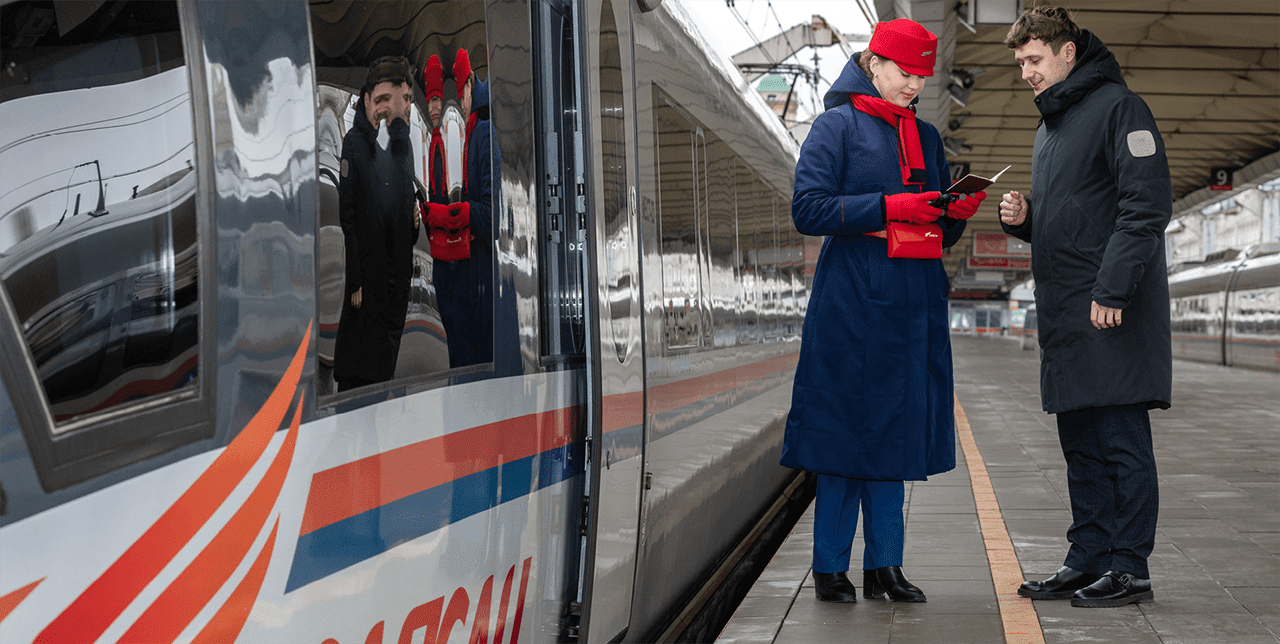Waste managementGRI 306–1, 306–2
Industry, innovation and infrastructure
Sustainable cities and communities
Responsible consumption and production
Russian Railways views efficient waste management as a prerequisite for transitioning to the circular economy. In the long run, the Company seeks to minimise waste sent to landfills by increasing its processing.
Production and consumption waste
In 2021, Russian Railways generated 1.412 mt of production and consumption waste, of which 0.066 mt was disposed of or decontaminated by the Company’s units. Given the waste generated by other business units in 2021, 1.482 mt of waste was transferred to third parties, including:
- 1.098 mt for subsequent disposal;
- 0.16 mt for decontamination;
- 0.224 mt for dumping.
In 2021, the share of production and consumption waste sent to landfills amounted to 14.8%, which is 1.6 pp below 2020 (16.4%).
Up to 80% of the waste generated by Russian Railways is decontaminated, reused or recycled. Most of it (ferrous and non-ferrous scrap metals and used petroleum products) is handled by waste processing professionals. Waste is also reused within the Company, including waste hazard classes 5 and 2–4 as per the waste management licence reissued to Russian
Russian Railways is adopting and promoting new waste management approaches and circular economy principles, including by recycling sleepers, used oil, and ferrous and non-ferrous metal scrap, to reduce its environmental footprint.
In 2021, we took various steps to increase the share of reused or recycled waste.
- October, Moscow, Gorky and Sverdlovskaya Railways operate facilities to recycle reinforced concrete sleepers into crushed aggregate for construction and clean scrap reinforcement steel. We processed 49,000 reinforced concrete sleepers.
- The Ukladochny and Perm-Sortirovochnaya railway stations (the West-Siberian and Sverdlovskaya Railways) operate two disposal units for industrial rubber products. The units recycled 444 t of waste, producing 269 t of rubber granules and 7,100 sq m of rubber flooring.
- Thermal neutralisation facilities of the Research and Production Centre for the Environmental Protection located in Yaroslavl and at the Tagul railway station decontaminated 3.042 kt of industrial and medical waste, along with 91,300 used wooden sleepers.
- The reporting year saw a cogeneration unit at the Chernyakhovsk railway station of the Kaliningrad Railway consume hard fuel made of 36,800 wooden rails, generating 5,469 Gcal of heat and saving 744,190 cu m of natural gas.
- Russian Railways scouted intellectual property across technologies that focus on disposal of waste hazard classes II–IV containing petroleum products.
- As part of its efforts to digitalise waste management, the Company's single control centre for environmental, industrial and fire safety introduced a new 2-TP statistic form (waste) for the purposes of waste management reporting.
- To reduce the amount of landfilled waste, we engaged cleaning and outsourcing companies in the passenger transportation sector to take part in the selective collection of paper, glass and plastic.
- In October, the Company approved standard separate waste accumulation solutions used at railway stations.
- The reporting year saw 1.854 kt of paper, cardboard, glass, plastic, and household aluminium waste sent for disposal (up 0.3 kt or 21% y-o-y). Among secondary materials, paper and cardboard are most often sent for recycling. To reduce the volumes of waste paper, we take steps to introduce electronic workflow.
In 2021, the Railway Stations Directorate started furnishing the Moscow and St Petersburg railway stations with reverse vending machines.
We are also considering a bonus system for passengers who will use these machines to send packaging for recycling, and taking steps to collect used chemical current sources (batteries) from passengers and employees. The Administration and Maintenance Department installed 24 containers at 15 Russian Railways office locations to collect used batteries. Such containers were also put in place at the Irkutsk-Passazhirsky, Angarsk and Usolye-Sibirskoye railway stations (the West-Siberian Railway Stations Directorate) and the Kazan railway station (the Moscow Railway Stations Directorate).
In December 2021, an expert group under Russian Railways' R&D Council held a meeting attended by the Russian Ministry of Natural Resources and Environment, scientists, NGOs and major waste disposal operators. The participants resolved to develop a concept for using Russian Railways' recyclables as part of the waste management system (with an action plan extending to 2035), and to identify priority technologies to be implemented following the scouting for intellectual property across waste management solutions.
Russian Railways implemented separate collection of paper (newspapers and magazines) and plastics on its high-speed Sapsan trains. Cars feature labelled stationary containers to collect recyclables. Trains also have specially designed mobile collection trolleys. During the trip, passengers are encouraged to separate waste into two groups.
In 2021, Sapsan trains collected and sent 17.6 t of paper and plastic waste for recycling.
On 20 December 2021, the Company approved standard separate waste collection solutions used on trains and at operational sites owned by the High-Speed Transportation Directorate.
The Directorate raises awareness about Russian Railways' environmental initiatives by means of on-board videos, publications in newspapers and magazines, social media and on-board catering activities.
